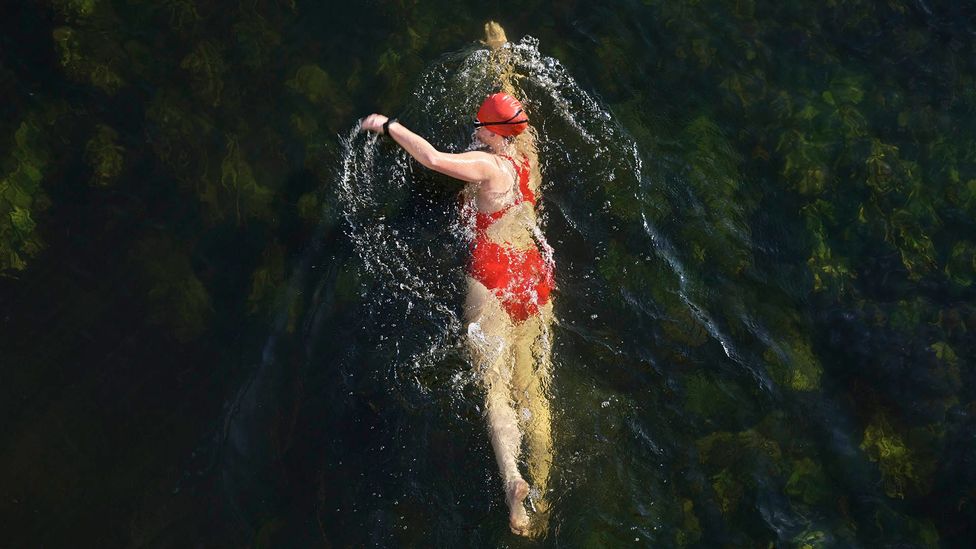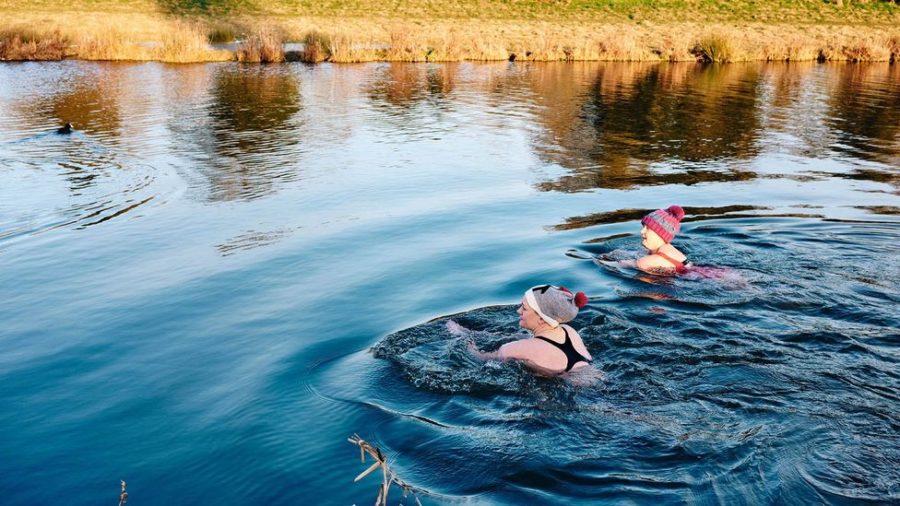During the pandemic, the hobby of outdoor swimming has been rediscovered
An antidote to pandemic loneliness, outdoor swimming groups shine the light on the pastime’s potential mental and physical health benefits.
The following written content by Ulrike Lemmin-Woolfrey

In between lockdowns, on a miserable, cold January day, I took myself off to Clevedon, a coastal town near me on the Bristol Channel. I wrapped myself in warm clothing and walked to Marine Lake, a seawater pool built onto the natural coastline. To my surprise, I saw a group of giggling women emerging from the ice-cold water. Spluttering and chatting away, they awkwardly changed into their clothes under their towels. I stood and looked on in disbelief: it was freezing, but they were jubilant, defying the weather by going for a swim.
Swimming has always been a popular sport in the UK, with accounts of 16th-Century knights struggling to paddle in full armour and Victorians embracing dips in the sea. But during the pandemic, the hobby of outdoor swimming has been rediscovered. Public swimming pools closed, and people could not travel, so they looked closer to home for opportunities to swim, creating a spike in interest and soaring club memberships.
From Scotland to Cornwall, people have been taking to the seas, lakes, lochs and rivers in greater numbers than ever before. Be it floating past a stately home by the river Derwent (afternoon tea at Chatsworth, anyone?), dodging monsters at Loch Ness or dipping into Wales’ very own Blue Lagoon in Pembrokeshire, the UK’s wild swimming sites are as varied as they are beautiful – even if the water temperature requires a certain level of bravery.
It seems that swimming and being outdoors is not just beneficial for your physical health, but it may also be beneficial for your mental wellbeing. Read more about wild swimming from BBC.





